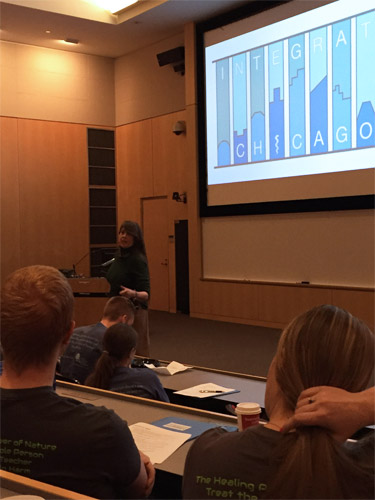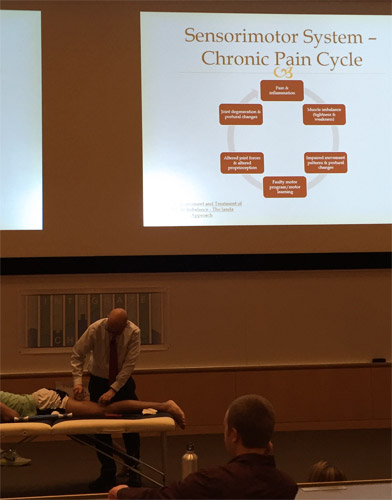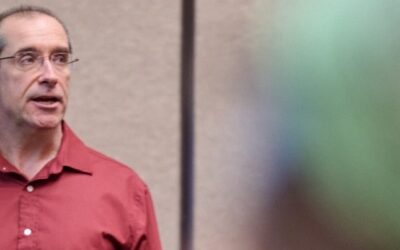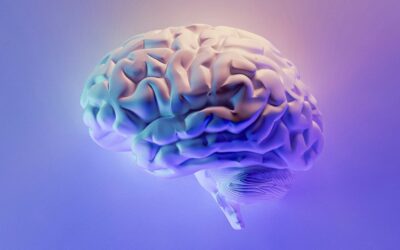Coming through midterms is like emerging from a dense fog. First, there’s a glimmer of light so faint that it can hardly even be seen – just a few photons shimmering and refracting through the mist. But, bit by bit, almost imperceivable at first, things get brighter. The daylight seems even more welcoming and beautiful than ever before, contrasted by the fog: a reminder that all things have silver linings. Hence, it seemed fitting that, on Saturday morning, I stepped out of my apartment into the warmest, sunny day we’ve seen this year. Having finished 3 out of 7 midterms, I was feeling pretty chipper and the weather only served to amplify my excitement for Integrate Chicago!
Integrate Chicago is an annual conference aimed at bringing different factions of healthcare together, to encourage collaboration, and to provide education on various treatment styles and their efficacy. It would have been impossible to keep me from going as it was held at Northwestern University’s Feinburg School of Medicine, which is just a short ride on the ‘L’ away from me. And if the proximity wasn’t reason enough to attend, the knowledge that one of National University’s own, Dr. Louise Edwards (Dr. Lou as she prefers to be called), was to give the opening statements definitely was reason enough.

I have never heard Dr. “Lou” lecture before, so my first exposure was downright captivating. Dr. Lou is one of the proverbial “elders” of the naturopathic profession; that is to say, she is one of the driving forces that helped coax the profession from the shadows and root it into a solid foundation. As a lecturer, she confidently paces the front of the audience, so as to make earnest eye contact with as many people as possible. Her prose is confident and relaxed — her personality magnetic. It is a rare gift to listen to a speaker as prodigious as her. There is no better voice for the ND profession than her.
As I was listening to the different speakers sharing their own approach to healthcare and treatment, I took notice of the very common sensical approach. One doctor, an MD, expounded on how he performs tool-assisted soft tissue therapy with a Chinese soup spoon. “It’s effective,” he said. “There’s no need to spend two grand on a set of fancy tools.” All speakers reaffirmed that we, as students, are given the knowledge we need to treat patients effectively. I feel that this is a message that DCs desperately need to hear.
As DCs, we are bombarded by a barrage of messages, both subliminal and explicit, that what we will learn isn’t enough. We’re told we need this seminar that teaches you how to rub fascia to loosen adhesions, or that seminar that will enlighten you on the complex art of how to shorten a muscle, apply pressure to a “knot” and then lengthen the muscle (all of which are packaged under 5 different names by different companies that boast that they have the secret to the perfect tool or technique). Yet, here’s a doctor that utilizes a Chinese soup spoon to equal effect. We have one of the most rigorous anatomy programs in the nation, yet somehow we’re convinced that knowledge isn’t power. We know the origins and insertions of every muscle in the body, the way they contract, and the motions they perform. To me, that seems like plenty of knowledge to know how to “pin and stretch” a muscle, or to “scrape” fascia.

I was thinking of attending a DNS (Dynamic Neuromuscular Stabilization) seminar this past weekend — a seminar that is regularly priced at $800. The one seminar doesn’t even result in a certification; you must attend at least a few more before that is achieved. Regardless, DNS is something that makes a great deal of sense to me. It’s a way of reprogramming faulty neuromuscular patterns and movement strategies. Then I began to think. How many of my patients would actually comply with the stringent daily routine of exercises? How many would actually benefit from the nuanced treatment protocols? I don’t plan on having a sports medicine practice, which is the only type of practice in which DNS would be extremely successful. It can refine high-end athletes’ movement patterns; they crave stuff like this. The average Joe, however, wouldn’t view the juice as worth the squeeze. Not to mention, my time investment into each DNS patient would be over quadruple what it would be for a “normal patient” making the appointment slot cost much more.
It’s my belief that I can effectively treat most athletes that walk through my door with what I learn in school. I’ll definitely take a few rehab seminars through Midwest Rehabilitation Institute, but at $175 each I’ll get a far better bang for my buck. Although, I suppose it just comes down to one’s preferred scope of practice. The bottom line is: try not to let the barrage of messages get to you; choose your seminars wisely. Thoughtful application of what you learn in school to patient care will get you very far. There’s brilliance in the basics.




0 Comments